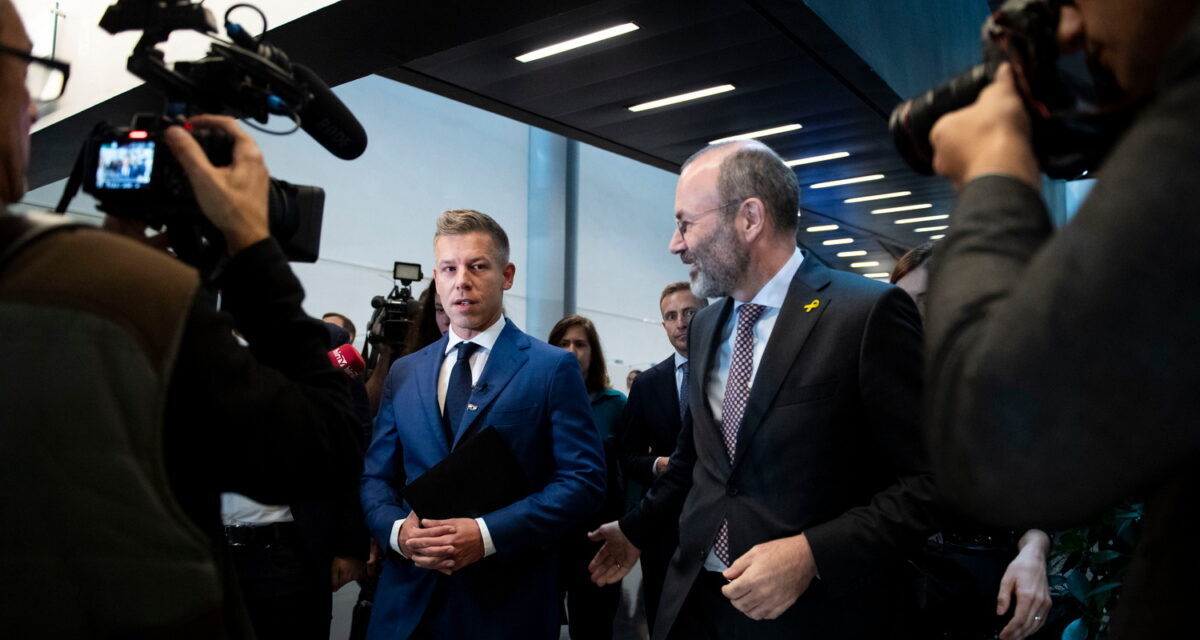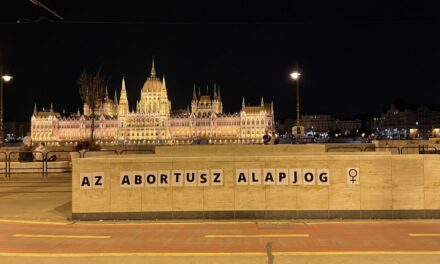Péter Magyar is right: it really is over. It doesn't get any lower than that. As the President of the Commission and several representatives spoke in the European Parliament after the presentation of Hungary's consecutive EU presidential program, it is the trampling of everything that we once called civil, cultured, nota bene, European into the mud.
But what took place in Strasbourg is not without precedent. Let's start with the fact that a narcissistic, short-tempered, power-hungry head of the family - taking advantage of the political scandal involving his wife - came out from behind the woman's skirt and demanded satisfaction for himself using sexual means. His appearance on the stage made it clear that he had been struggling with his second-order status within the family for a long time, while he became increasingly convinced that he deserved more. To achieve his goal, he gathered the prime minister and government haters of social media into a bouquet, and turning his back on this ever-growing crowd,
he tackled everything he encountered, raising the virtual sign "the prime minister's seat belongs to me" higher and higher.
He could not act like Péter Jakab from Jobbik, who years ago installed himself directly in the prime minister's seat, and refused to stand up even at the firm request of the executive president of the Parliament. Thus, he could not please as head of state, since he is not a representative of the Hungarian legislature. Its inventors realized: if it doesn't work at home, let's topple the national government from outside, beyond the borders of the country! Just as it was done in Warsaw.
In the campaign for the European Union parliamentary elections, the small ball went on a national tour. From square to square, from the street corner to the truck bed, it kept growing and growing. It absorbed the voters of the old left, which has been unfortunate for more than a decade now, the votes of the visually impaired from the liberals' guidelines, and the protests of voters disappointed in the "Hungarian way" of Fidesz - KDNP. With its last rollover, oops, it turned into a party. His choice of name is also exemplary. Because the unconscious facebook could have triggered something in the freedom fighters as well. He could recall Petőfi's lines about the "most Hungarian river", the flood that sweeps everything away, but also the personality of the former Speaker of the House - Prime Minister, István Tisza. The latter cannot be neglected, even if not all of the followers of the Tisza Party saw the trace of the bullet that an opposition member intended for the presiding Iron Count in the presidential pulpit of the Parliament. That assassination was still unsuccessful.
Even the current Prime Minister of Hungary knew that he could not count on a warm welcome in the Parliament of the Union, even if he did not assume that the left-liberal majority, picking up the temper of the social media, his low-key language, and his under-the-belt pub style, would use the dangerous weapon of the word on him as one man.
Let us remind you that in the middle of the summer - at the beginning of the presidential semester - there was no way the agenda-makers in Brussels wanted to find time to listen to and discuss the Hungarian government's ideas for improvement - formulated in the interest of Europe. Only now - halfway through the presidential term - was he able to find time for this. But they also used this opportunity only to announce: they are not interested in the plans of the Hungarians. It was announced: it is not a matter of debate that this will remain so as long as Fidesz - KDNP is in power in Budapest, and the socialists who have been tamed from communists and the tizhas who have become people's parties do not get ministerial portfolios. In other words, it is beyond dispute that
Brussels issued the launch permit for the anti-immigration, pro-peace Hungarian Prime Minister.
Some people stood and clapped their hands red in the House of Honor in Strasbourg, overheated with disrespect, others poured their expressions of approval on each other in the virtual world. They liked, posted and shared what they heard as good news.
"His distinctive conservative policy, which can be criticized and defended at the same time, was surrounded by hatred and admiration." - was written in 1918 about the retired prime minister, István Tisza, after the fourth assassination attempt against him took his life as the vanguard of the Soviet Republic - as a result of the left-wing demonstrations sweeping through the capital.
Dumb
Cover photo: Péter Magyar, president and MEP representative of the Tisza Party (b) and Manfred Weber, president of the European People's Party (EPP) hold a press conference in Strasbourg on October 9, 2024.
MTI/Boglárka Boglárka













